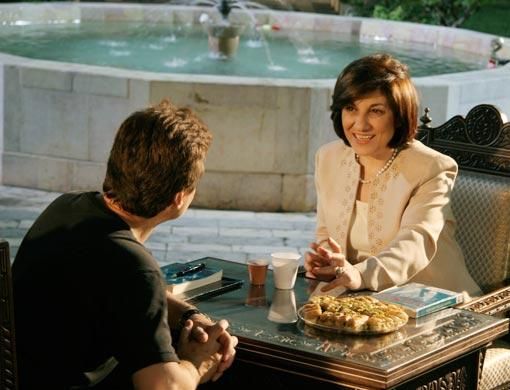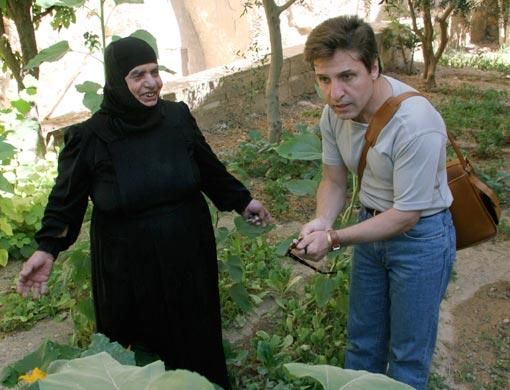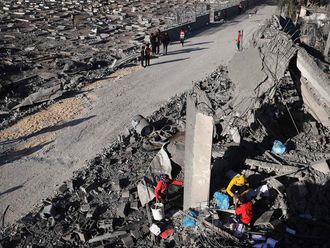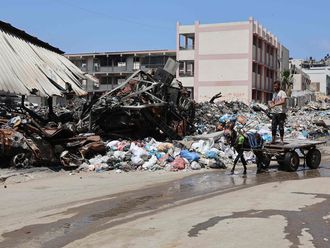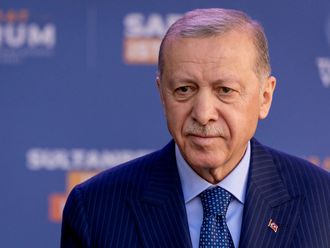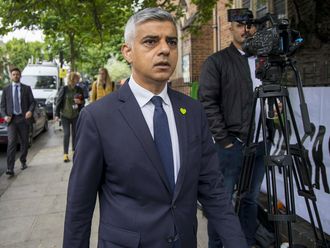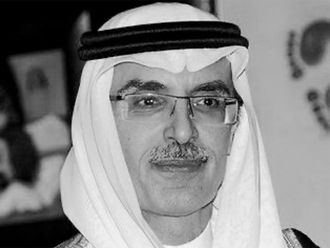Dubai: A documentary about a prominent female Syrian politician and writer has won international recognition at a time when the image of Arabs is still being distorted by negative portrayals of them after September 11, 2001.
For Ziad Hamzeh, the Arab-American writer and producer, there is a special place in his life for the award his documentary, Woman, has won recently.
The film speaks about the greatness of Arab women, exemplified by the Syrian writer, lecturer and minister Bouthaina Shaaban.
"I have won some 40 awards in my career. None is more important than the other. But this is different," said Hamzeh in an interview with Gulf News after he won the Golden Palm Award at the 2008 Beverly Hills Film Festival.
The relatively young festival is for independent filmmakers and does not include giant productions and studio companies of big names.
"This film is about a Syrian woman, an Arab woman, at a time when the media is distorting the Arab image in the West," he added in a telephone interview from his office in Boston, Massachusetts.
As a result of this distortion, "when people find out you are an Arab, they ask themselves in which of your pockets you hide the bomb. They think all Arabs are insane," he noted.
The image of an Arab as a villain was imposed on the West after the 9/11 attacks in the US. "After 9/11, I left whatever was Arabic behind me. When 9/11 happened, I felt for the first time, the burden and guilt of being an Arab ... while I should embrace my people and my culture," said Hamzeh, 49, a Syrian who immigrated to the US some 34 years ago.
Hamzeh explains he felt the need to "balance all the negative approaches with others" and show the correct image through his camera. A few years ago, he was weighing the idea of producing a film about honour killing in the Arab world, but shelved the idea simply because it would reinforce the negative image of Arabs.
Several women are killed in the Arab region every year in the name of honour. In many cases, only suspicion of illegitimate relationships with men is sufficient reason to end the life of a female.
Hamzeh was visiting Damascus in 2006, when one of his friends asked him to read a book written by Bouthaina Shaaban. He liked the book and asked to interview the minister. The request was approved, but instead of the 15-minute interview he was allowed, the interview lasted for two hours and the discussion went on as if they "knew each other for 20 years", Hamzeh recalled.
"I saw in her my sisters, my mother and my grandmother. I saw in her all the Arab women. She is respectable, smart, honest, decent ... " he said. "Unfortunately, her only weak point is that she is a minister, [if she were not] people would have the chance to get to know her better and like her more." Hamzeh chose Shaaban to tell a story "which is like the stories of many Arab women ... They have worked hard to reach high positions. She is just an example of a self-made Arab woman."
The film is a narrative documentary and it is multi-layered. Shaaban speaks about herself and her mother and the Arab compatriots whom she has come across in her life. It took two weeks to film and nearly six weeks to edit.
Hamzeh decided not to send the film to "big festivals because there are many politics involved. I just wanted people to listen to the story and see an image of the Arabs." Woman was shown at the Mid Ulster film festival, held early in May in Ireland. Shaaban, who liked the film, was present. She was crying and attendants queued to greet her.
The 93-minute Woman is a journey back to Shaaban's early years as a schoolgirl in a small village near Homs, showing how she evolved to become a top Syrian politician. She is also a writer, columnist and mother of two daughters and a son.
Background: Illustrious career
- 1971 - 1975: Received her BA in English Literature, Damascus University, Syria
- 1976 - 1977: Masters in English Literature, Warwick University, England
- 1977 - 1982: PhD in English Literature, Warwick University, England --1985 - 2002: Professor of Romantic Poetry, English Department, Damascus University
- 1988 - 2002: Advisor for Minister of Foreign Affairs, Syria
- 1993 - 2003: Interpreter for the President of Syria
- 1990 - 1991: Fulbright Research Scholarship, Duke University, Durham NC
- 2003 - present: Minister of Expatriates, Syria
- 2005: Awarded title of "Most Distinguished Woman in Governmental Position", League of Arab States, Cairo, Egypt
- Shaaban is also a prominent writer, columnist and a mother of two daughters and a son.


